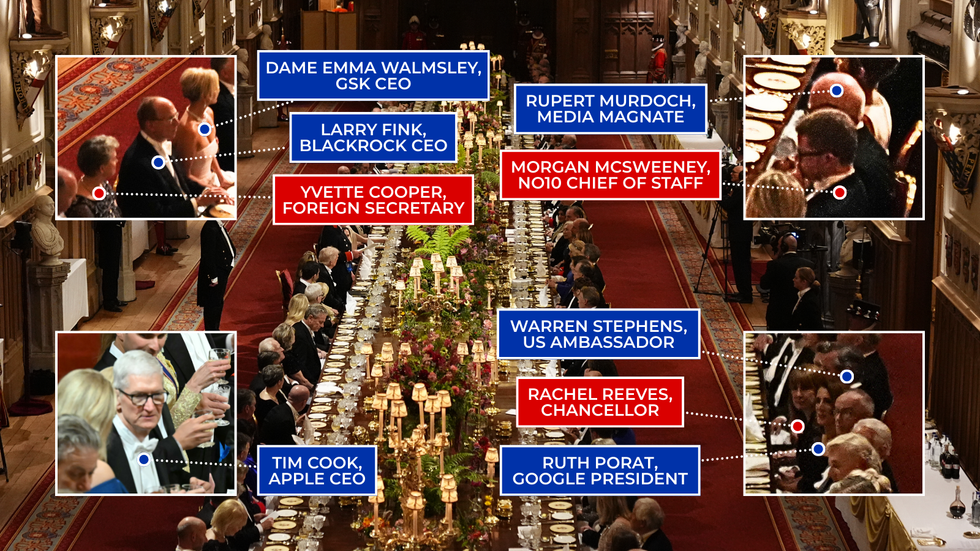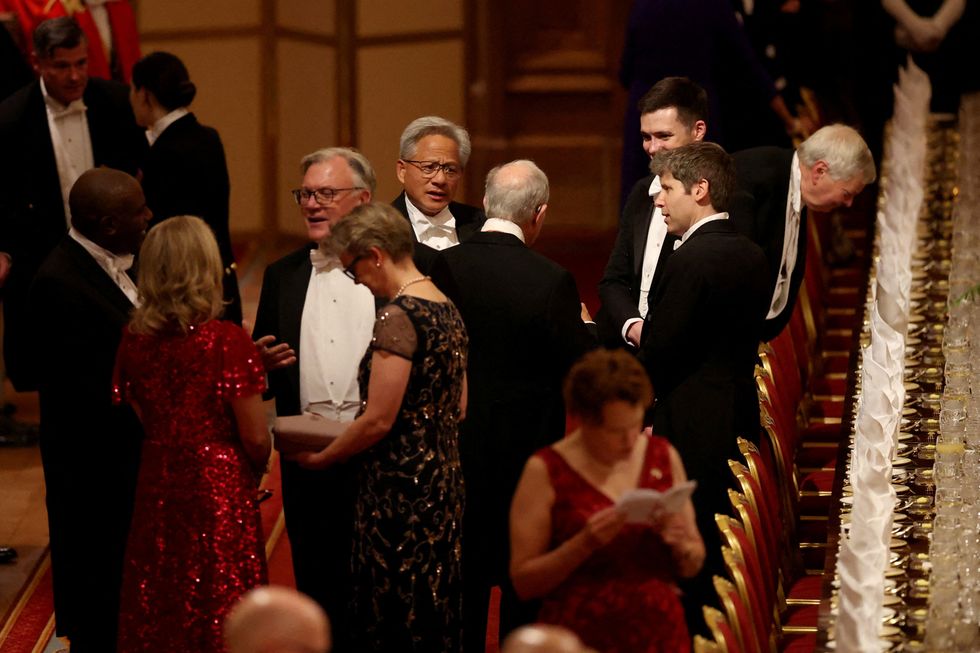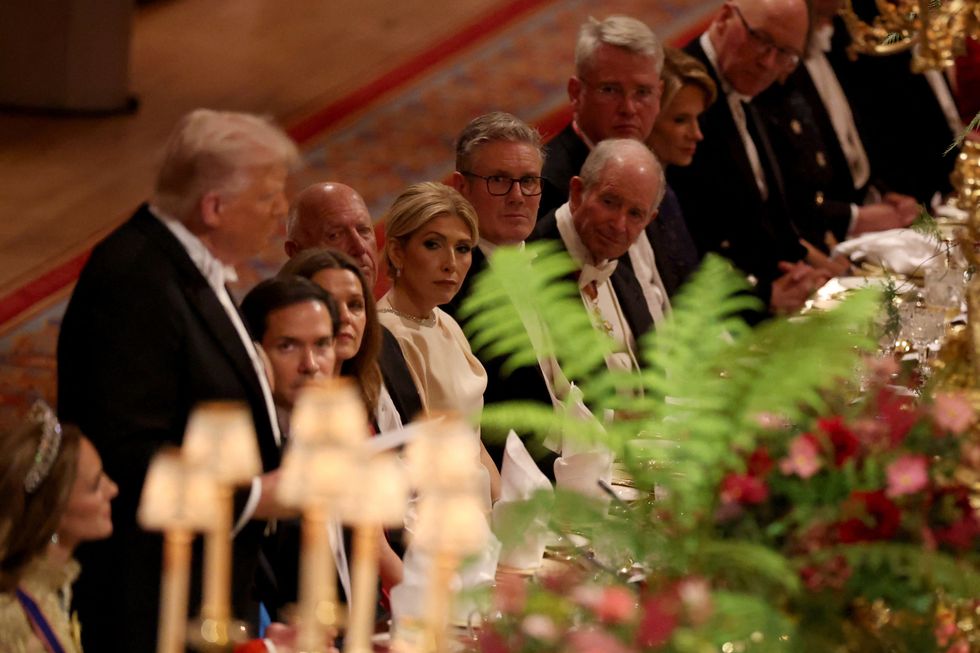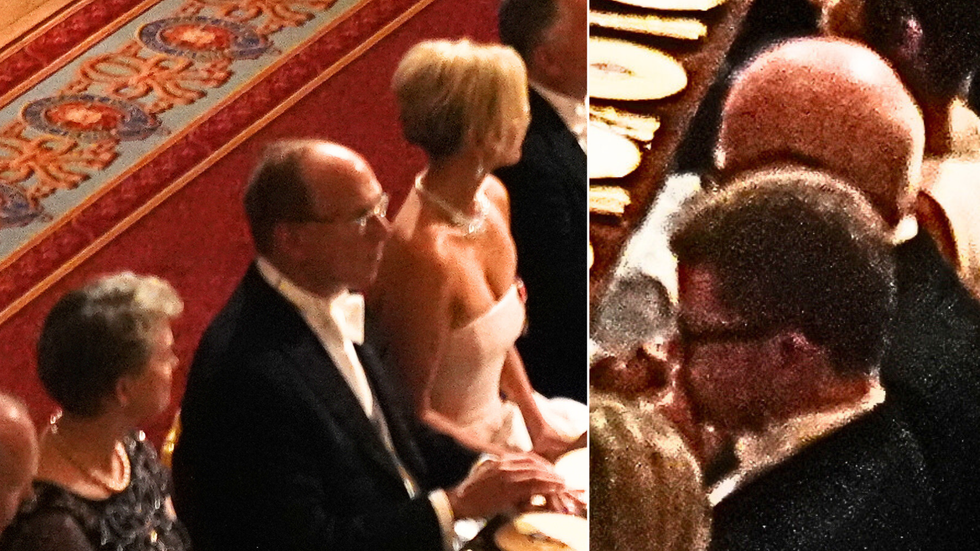Labour’s top brass were seen hobnobbing with some of the world’s most influential business moguls last night at the State Banquet.
Some 160 guests were in attendance, with ministers, royalty and dignitaries seated around a nearly 50-metre-long banquet table in Windsor.
The King paid tribute to the “special relationship”, while President Donald Trump hailed the “priceless bond of kinship” between Britain and America.
But around the table, a carefully-curated seating plan saw Labour heavyweights placed between investment magnates, tech billionaires, and media tycoons.
Larry Fink, the co-founder and CEO of BlackRock, was flanked by new Foreign Secretary Yvette Cooper and GlaxoSmithKline CEO Dame Emma Walmsley.
BlackRock boasts an investment portfolio said to be worth up to $10trillion – just under half the UK’s “national net worth” of £13trillion.

Mr Fink sits on the board of the World Economic Forum and is a life-long Democratic Party supporter.
Dame Emma oversaw GSK through the pandemic – and in July 2020, the British Government placed an order for 60 million doses of a COVID-19 vaccine developed by GSK and French firm Sanofi.
That trio sat on the same side of the long banquet table as US Secretary of State Marco Rubio, King Charles, President Trump and the Princess of Wales.
Elsewhere on the left, Sir Keir Starmer was flanked by Mr Rubio’s wife Jeanette and Blackstone CEO Steve Schwarzman.
Blackstone, another world-leading investment management firm, controls over $1trillion in assets.
On the other side of the table, Chancellor Rachel Reeves was seated between US ambassador Warren Stephens, and Ruth Porat, the president of Google.
Ms Porat oversees Google’s investments in real estate, infrastructure and data centres across the world.
LABOUR TAKES ON BIG BUSINESS – READ MORE:
- Labour has left investors like me out in the cold…only one party can now save us – Mandhira Kapur Smith
- Labour accused of ignoring car industry with a ‘real lack of understanding’ as UK risks losing 144k jobs
- ‘Labour is BANKRUPTING Britain!’ Rachel Reeves blasted from all sides as dust settles on Spending Review

Further down on the right, next to each other, were No10 Chief of Staff Morgan McSweeney and media magnate Rupert Murdoch.
Mr McSweeney, who has made headlines in recent days over his handling of the Lord Mandelson scandal, appeared deep in thought next to the former owner of NewsCorp – which owns The Sun, The Times and The Wall Street Journal among others.
Mr Murdoch is being sued by Mr Trump over the WSJ’s reporting on a birthday card allegedly sent by the President to Jeffrey Epstein.
Elsewhere, tech tycoons including Nvidia’s Jensen Huang, Apple’s Tim Cook and OpenAI’s Sam Altman were all spotted at the banquet.
The dinner chats came before the Prime Minister announced the prospect of some £150billion flowing into the UK from firms such as Blackstone and Palantir overnight.
As many as 7,600 “high quality” jobs will be created across the country as a result of the cash boost, the Government said.
With Sir Keir and Mr Trump meeting at Chequers on Thursday, the pair are also eyeing up signing a “technology prosperity deal”, touted as offering major investment by US tech firms in Britain which will help to develop its AI capabilities.

But the high-level meetings stand before a grim backdrop for Britain’s small businesses.
Nearly 380 pubs across England, Wales and Scotland face closure this year, industry figures released this summer revealed.
The British Beer & Pub Association (BBPA), which represents over 20,000 pubs, predicted that 378 establishments will shut their doors permanently – more than one pub every day.
These closures would result in over 5,600 direct job losses – almost three quarters of the “high quality” jobs set to be created from the US-UK deals.

Just weeks ago, ONS data found that thousands of farms were forced to close down after Rachel Reeves’s inheritance tax raid.
Over the past year a total of 6,365 agriculture, forestry and fishing businesses have shut.
It was the highest since quarterly data was first established in 2017 – with most of the closures taking place during the first six months after Reeves’s October Budget.
Around the same time, figures from Begbies Traynor, a firm which helps struggling companies, found that 49,309 businesses are in “critical financial distress”, up more than 21 per cent compared to the same time last year.
And earlier this week, the ONS confirmed the rate of UK unemployment stayed at 4.7 per cent in the three months to July, compared with the three months to June.
Our Standards:
The GB News Editorial Charter







Follow